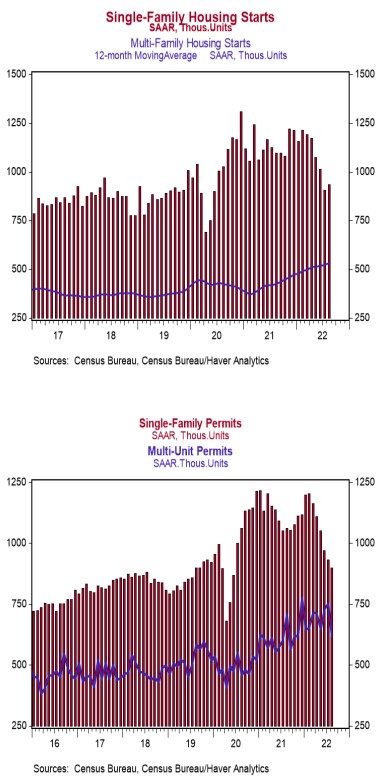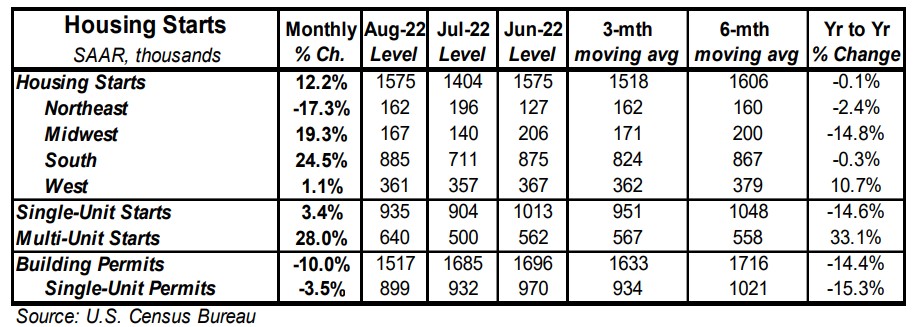- Housing starts increased 12.2% in August to a 1.575 million annual rate, easily beating the consensus expected 1.450 million. Starts are down 0.1% versus a year ago.
- The gain in August was due to both single-family and multi-unit starts. In the past year, single-family starts are down 14.6% while multi-unit starts are up 33.1%.
- Starts in August rose in the South, Midwest and West, but fell in the Northeast.
- New building permits fell 10.0% in August to a 1.517 million annual rate, below the consensus expected 1.604 million. Compared to a year ago, permits for single-family homes are down 15.3% while permits for multi-unit homes are down 13.1%.
Implications:
Following a string of weak reports US housing starts rose unexpectedly in August, despite relatively high mortgage rates, labor shortages, and ongoing supply-chain issues. Looking at the details, the best news was that single-family construction rose 3.4%, the first gain in six months. Meanwhile, the majority of today’s gain came from multi-unit starts which jumped 28.0%. It is clear developers are becoming more cautious about future demand for new single-family projects with 30-year mortgage rates now above 6.0% and are continuing to focus resources on apartment buildings instead. Over the past year single-family starts are down 14.6% versus multi-unit starts, which are up 33.1%. We expect starts to resume a trend downward in the next several months. Lots of homes are already in the pipeline, with the number of homes under construction at the highest level on record back to 1970. These figures illustrate a slower construction process due to a lack of workers and other supply-chain difficulties. In this context, it’s not surprising to see new building permits decline 10.0% in August. The backlog of projects that have been authorized but not yet started is currently just below the record high since the series began back in 1999. Meanwhile, homebuilder sentiment, as measured by the NAHB Housing Index, is deteriorating. The index fell for a ninth consecutive month to 46 in September. An index reading below 50 signals that more builders view conditions as poor vs. good. The prime concern continues to be higher mortgage rates, which are having a negative impact on potential sales as certain buyers are at least temporarily priced out of the market, leaving some builders with a surplus of inventory. In spite of all this, do not expect a housing bust nearly as harsh as in the 2000s. Unlike the previous housing bust, we do not have a massive oversupply of homes.





